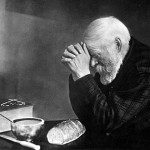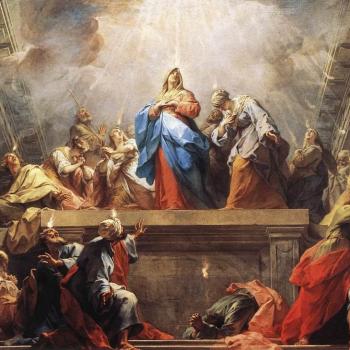There’s an African proverb, I am told, that goes like this: “If I don’t beat my own drum, who will?” In this spirit, permit me to make known to Anxious-Bench readers two publications of mine. The first is recently out; the second will be out in a matter of weeks. It has been a delight working with Oxford University Press on both of them. The first is an edited book with Mark Noll, entitled Protestantism after 500 Years. Here is its dustjacket description:
The world stands before a landmark date: October 31, 2017, the quincentennial of the Protestant Reformation. Countries, social movements, churches, universities, seminaries, and other institutions shaped by Protestantism face a daunting question: how should the Reformation be commemorated 500 years after the fact? In this volume, leading historians and theologians, Protestant and Catholic, come together to grapple with this question and examine the historical significance of the Reformation. Protestantism has been credited for restoring essential Christian truth, blamed for disastrous church divisions, and invoked as the cause of modern liberalism, capitalism, democracy, individualism, modern science, secularism, and so much else. This book examines the historical significance of the Reformation and considers how we might expand and enrich the ongoing conversation about Protestantism’s impact. The contributors conclude that we must remember the Reformation not only because of the enduring, sometimes painful religious divisions that emerged from this era, but also because a historical understanding of the Reformation is necessary for promoting ecumenical understanding and thinking wisely about the future of Christianity.
The second book is individually-authored by your humble scribe and it is entitled Remembering the Reformation: An Inquiry into the Meanings of Protestantism. Here is its description:
The 500th anniversary of the Reformation in 2017 focuses the mind on the history and significance of Protestant forms of Christianity. It also prompts the question of how the Reformation has been commemorated on past anniversary occasions. In an effort to examine various meanings attributed to Protestantism, this book recounts and analyzes major commemorative occasions, including the famous posting of the 95 Theses in 1517 or the birth and death dates of Martin Luther, respectively 1483 and 1546. Beginning with the first centennial jubilee in 1617, Remembering the Reformation: An Inquiry into the Meanings of Protestantism makes its way to the 500th anniversary of Martin Luther’s birth, internationally marked in 1983. While the book focuses on German-speaking lands, Thomas Albert Howard also looks at Reformation commemorations in other countries, notably in the United States. The central argument is that past commemorations have been heavily shaped by their historical moment, exhibiting confessional, liberal, nationalist, militaristic, Marxist, and ecumenical motifs, among others.
It is my (and Mark Noll’s) sincere hope that these publications will contribute to the many important conversations and debates that should be taking place in anticipation of the Reformation’s 500th anniversary in 2017—and long after.
Thomas Albert Howard, Valparaiso University













